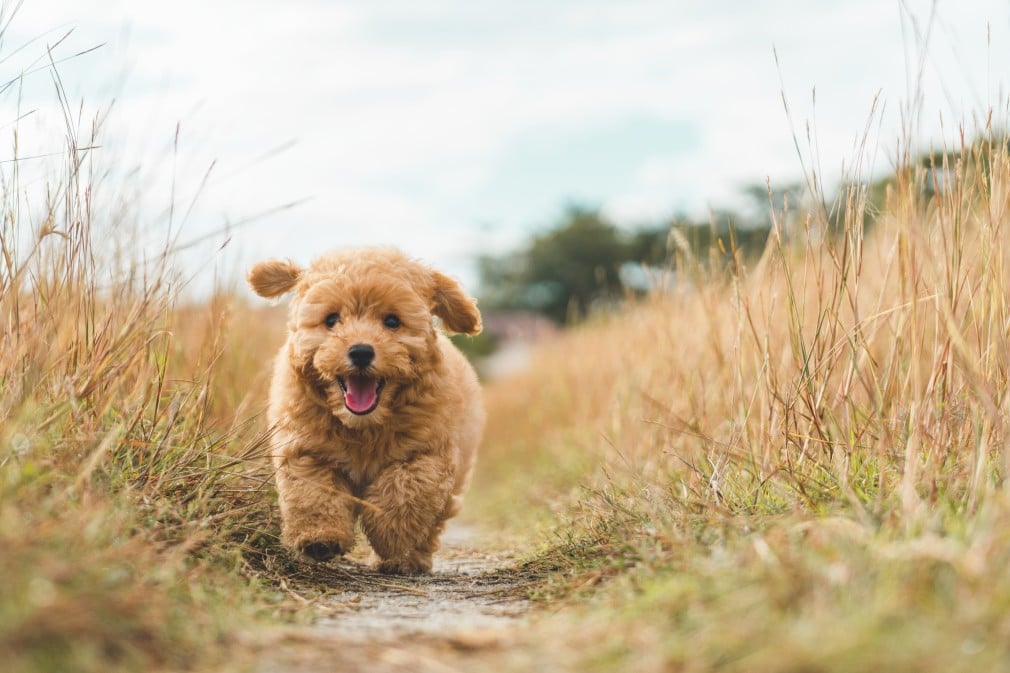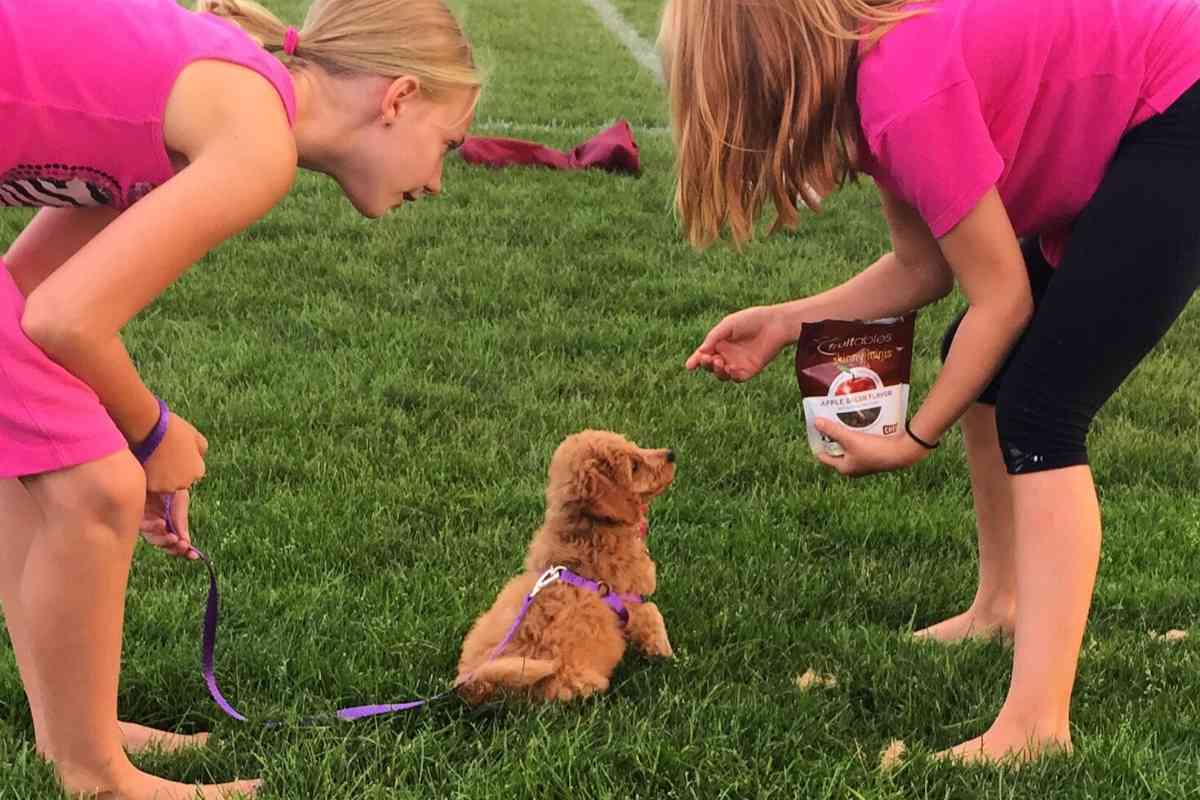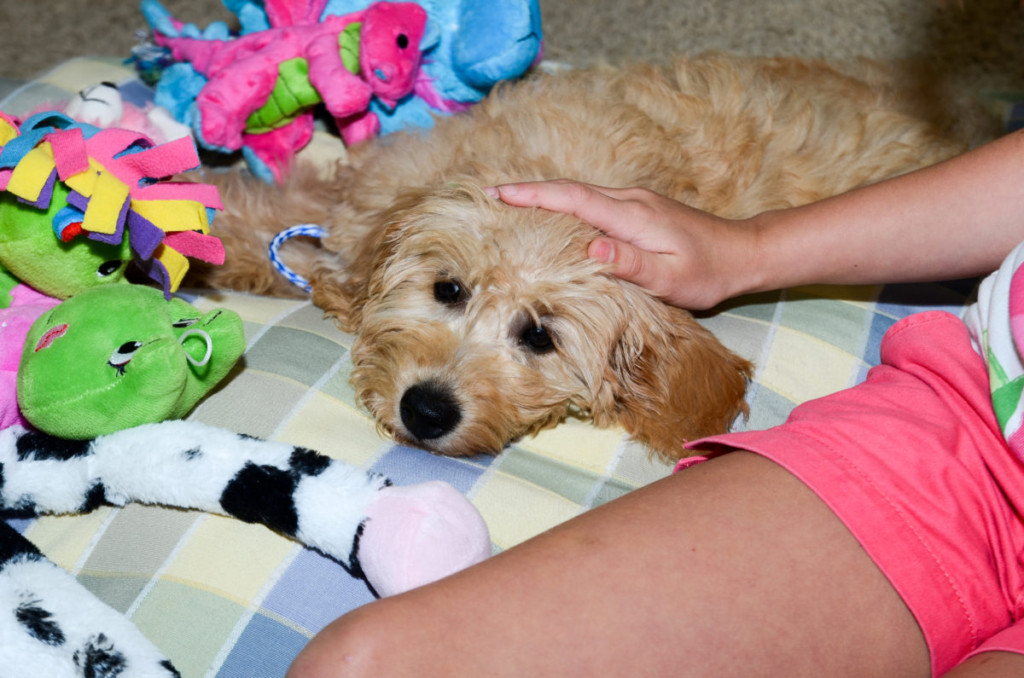When Is the Best Time to Get a Puppy?
Have you been thinking about getting a puppy and wondering if now is the best time to get one? There are a lot of things to consider before figuring out the best time for you, your family, and the puppy. After all, getting a puppy is a commitment that may last 15 years or longer!
Let’s talk about some of the things you must think about before adding a Goldendoodle puppy to your family to make sure it’s the best time to get a puppy.
When Is the Best Time to Get a Puppy?
When is the best time to get a puppy? The best time to get a puppy is when you have the time and money to spend raising one, the spring or summer, and when the puppy is around 8 weeks old. There are many factors to consider before getting a puppy, and this answer may not be right for everybody, but it’s a good general guideline.
What Is the Best Age to Get a Puppy?
The best age to get a puppy is when they are 8 to 12 weeks old. Why?
Puppies start weaning off their mother’s milk when they are about 4 weeks old. The weaning process should take at least a couple of weeks. A lot of crucial socialization is happening during this time, too. They’re interacting with their littermates, their mom, and the breeder.
Puppies learn not to bite too hard by playing with their littermates. If they’re taken away from their littermates and mother before they’re at least 8 weeks old, you will have a much harder time teaching your puppy not to bite.

The critical socialization stage for puppies is from 3 to 12 weeks of age. While a lot of socialization happens with their littermates, puppies also need to get socialized with as many other people, pets, and places as possible when they’re young. That’s why it’s best to bring home your puppy before they’re 12 weeks old.
As you can see, the best age to get a puppy is when they are 8 to 12 weeks old. That time frame maximizes their time with their littermates as well as gives you time in their crucial socialization window to introduce them to your home, family, and other pets.
Is Winter a Bad Time to Get a Puppy?
If you live in a climate with distinct seasons, winter usually isn’t a very good time to get a puppy, for a variety of different reasons.
Puppies have small bladders, which means TONS of trips outside during all hours of the day and night. Potty training a puppy in winter can be miserable if you live in a cold climate. Puppies may also hesitate to do their business on snow or ice rather than grass since they’re just learning not to go wherever is convenient.
If you live somewhere exceptionally cold, consider how many layers you’ll have to put on before taking your puppy out, and how that might affect their odds of having accidents while they wait.

Another problem with winter is that the days are much shorter. You will have fewer hours of daylight for walking and playing with your puppy outside. You may spend a lot of time standing around in the cold and dark waiting for your puppy to do their business.
One final problem with bringing a puppy home during winter is the holidays. Sure, there’s a lot of winter left after Christmas where you could bring a puppy home and not have these problems.
But it’s essential to keep in mind that your home and schedule may be chaotic around the holidays. Do you really have the time and energy to house train a puppy while also dealing with the holidays? Time spent shopping or going to parties is time you could spend with your puppy, instead.
Are you planning on going out of town for the holidays? Most boarding facilities won’t even take young puppies, and even if you found a pet sitter, it’s a bad idea to leave your new puppy so soon after bringing it home. You should spend the first few months bonding with your puppy.
While you could make it work under the right circumstances, winter is usually not the best time to bring home a new puppy.
Do You Have the Time and Money to Get a Puppy?
The biggest thing you need to consider before getting a puppy is whether you have the time and money to care for one.
Puppies can only hold their bladder for their age in months plus one hours. That means a 2-month-old puppy needs to go outside at least every 3 hours. You can’t just toss them in a kennel all day and go to work.
Puppies also need to get as much socialization as possible while they are still young. You need to introduce your puppy to as many different people, animals, situations, and places as possible before they start to develop more fear about those things.

In addition to socialization, you need to spend plenty of time training your puppy a little bit every day. Puppy classes are also a great idea and are usually an hour a week of class time, with the expectation that you’ll practice in between classes.
Additionally, you may have budgeted for the purchase price of the puppy, but there are many one-time and recurring expenses associated with a puppy, including:
- Food
- Treats
collar and/or harness- Leash
- Bowls
- Toys
- Flea/tick/heartworm prevention
- Vet checkups
- Vaccinations
- Grooming
According to the American Society for the Prevention of Cruelty to Animals (ASPCA), the first-year costs for a large breed dog (like a Standard Goldendoodle) average more than $2,000, and that doesn’t include the cost of the puppy itself, which averages $1000 to $2500!
It’s important to be realistic about your finances before bringing a puppy into your life.
Can you afford to take your puppy to the vet in case of an emergency? Can you afford to take them to the groomer every 6 to 8 weeks? Have you factored the cost of flea and tick or heartworm preventative into your budget alongside food and treats?
It wouldn’t be fair to the puppy (or your heart) to bring them home, only to realize that you can’t afford to keep them. It’s better to understand now that you can’t really afford a dog’s upkeep for the next 10 to 20 years yet. Wait until your finances are a little better before getting a puppy.
Should I Get a Puppy if I Have a Baby?
It’s lovely to think about having your child growing up alongside a furry best friend.
However, it’s something you need to consider seriously. Young puppies are nearly as needy as human babies. Do you have the time, energy, and money to add another baby to your life? If you’re struggling to get enough sleep as is, then adding a puppy who will probably be on a different sleep schedule than your baby won’t help anything.

The other thing to consider is that dogs may be more likely to bite small children than adults. Toddlers, in particular, don’t yet understand how to be gentle, and even the friendliest dog may snap when having their ears or tail pulled on.
You may be able to make it work. But, generally speaking, it’s usually best to wait until your children are school-age before adding a puppy to your family. You will have more time and energy to devote to the puppy, and your kids will be old enough to help care for the puppy (although you should count on doing most of the work yourself).
What Month Are Most Puppies Born?
Apart from some of the more primitive dog breeds (like the Basenji, Tibetan Mastiff, and New Guinea Singing Dog), most dogs go into heat twice a year, and it can happen during any time of year. While wolves typically give birth only in the spring (April and May) in the northern hemisphere, dogs can give birth at any time of year.
Interestingly, research suggests that puppies who are born in April or May are less likely to develop heart problems than puppies born in July or August. That means the best time to bring home a 2-month-old puppy with the least likelihood of having heart trouble is July or August.
On another note, puppy mills may have a lot of puppies born around September or October, so they will be old enough to go home for Christmas. Reputable breeders understand that Christmas puppies are more likely to end up at a shelter than pets who aren’t bought as gifts and don’t intentionally breed puppies to be ready to go home in December.

Final Thoughts
As you can see, a whole lot of things should factor into your decision about when to get a puppy.
Generally, though, if you have the time and money, you should bring home an 8-week-old puppy in the late spring or early summer for the best results.